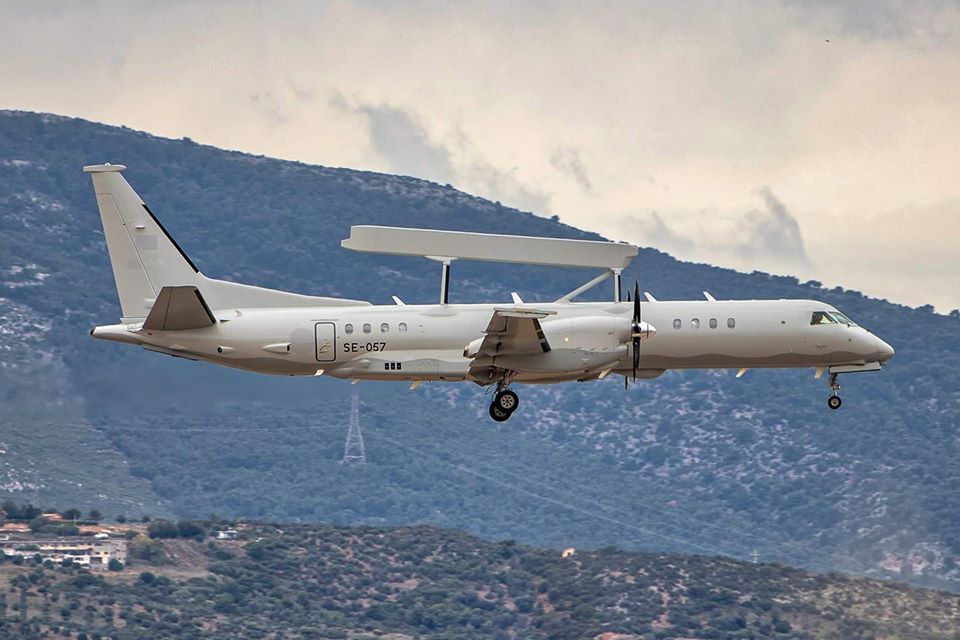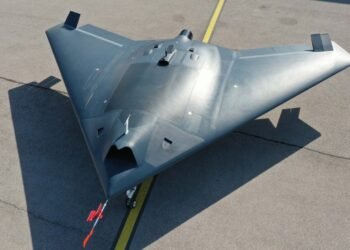Pakistan Air Force receives yet another Saab 2000 ERIEYE Airborne Early Warning and Control (AEW&C) aircraft delivery flight to Pakistan from Linköping City Airport (Sweden) via Athens (Greece) and Riyadh (Saudi Arabia). The aircraft, fully equipped for airborne early warning and control, can also be used for national security missions, border control, airborne command and control, disaster management coordination and for emergency air traffic control. Sweden, Greece, Brazil, Mexico, Pakistan, Thailand and the United Arab Emirates have been identified as Erieye users.
The first customer for the Saab 2000 AEW&C, the Pakistan Air Force placed the order with Saab, based in Stockholm, in June 2006 for Skr6.9bn. The Government of Pakistan renegogiated part of the contract in May 2007 due to financial crisis within the country. The contract value was reduced to Skr1.35bn. The first of four aircraft was rolled out in April 2008 and entered into service in October 2009. The second aircraft was delivered to Pakistan in April 2010 to monitor Indian airspace. In 2017, the Pakistan Air Force ordered three additional Erieye systems from Saab.
The Saab 2000 AEW&C airborne early warning and control aircraft is a variant of the Saab 2000 regional transport turboprop aircraft equipped with the spine-mounted Saab Systems Erieye PS-890 side-looking reconnaissance radar. Saab Microwave Systems (formerly Ericsson) is the lead contractor for the Erieye surveillance radar. Erieye is an active phased array pulse Doppler radar operating in the 3.1GHz to 3.3GHz band. The radar is operational from three minutes after take-off and during climb and provides an effective surveillance area of 500,000km².
The aircraft’s electronic warfare suite is based on the Saab Avitronics HES-21 electronic support measures (ESM) and self-protection suite. The HES-21 also provides a ground-based support system (EGSS), which provides mission data for the aircraft electronic warfare system and for analysis of recorded data.The electronic support measures (ESM) system comprises digital narrow band and wide band receivers and associated antennae, providing close to 100 % probability of intercept (POI). The digital receiver is equipped with interferometer antenna arrays.






